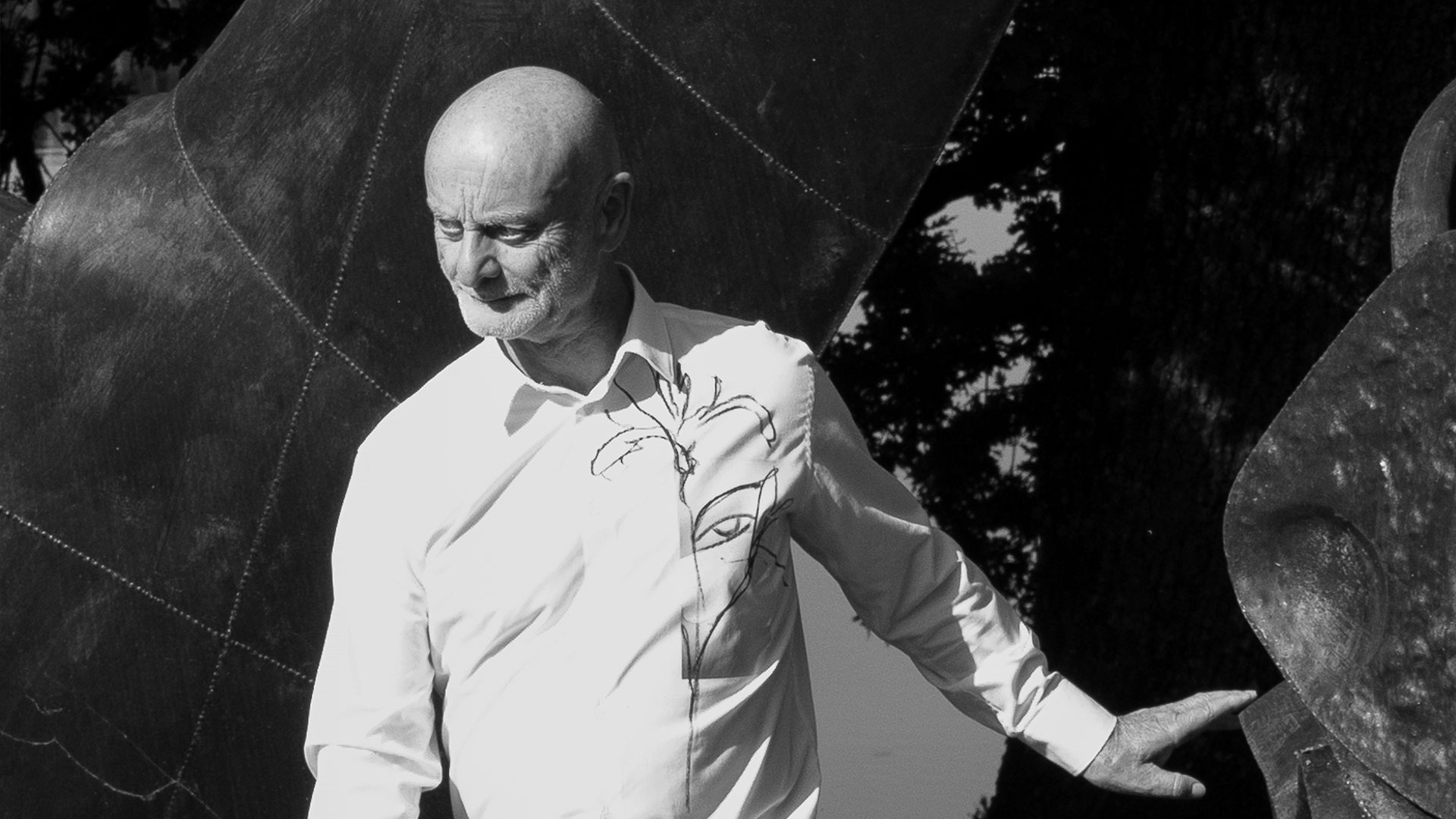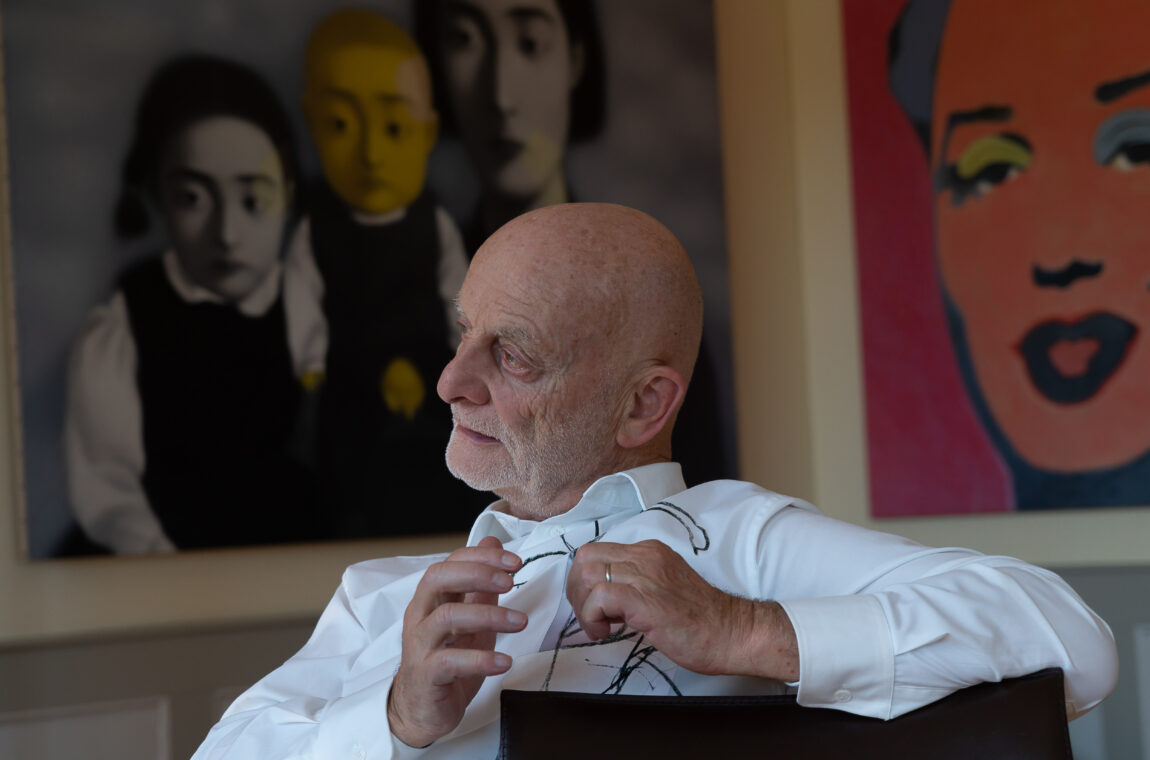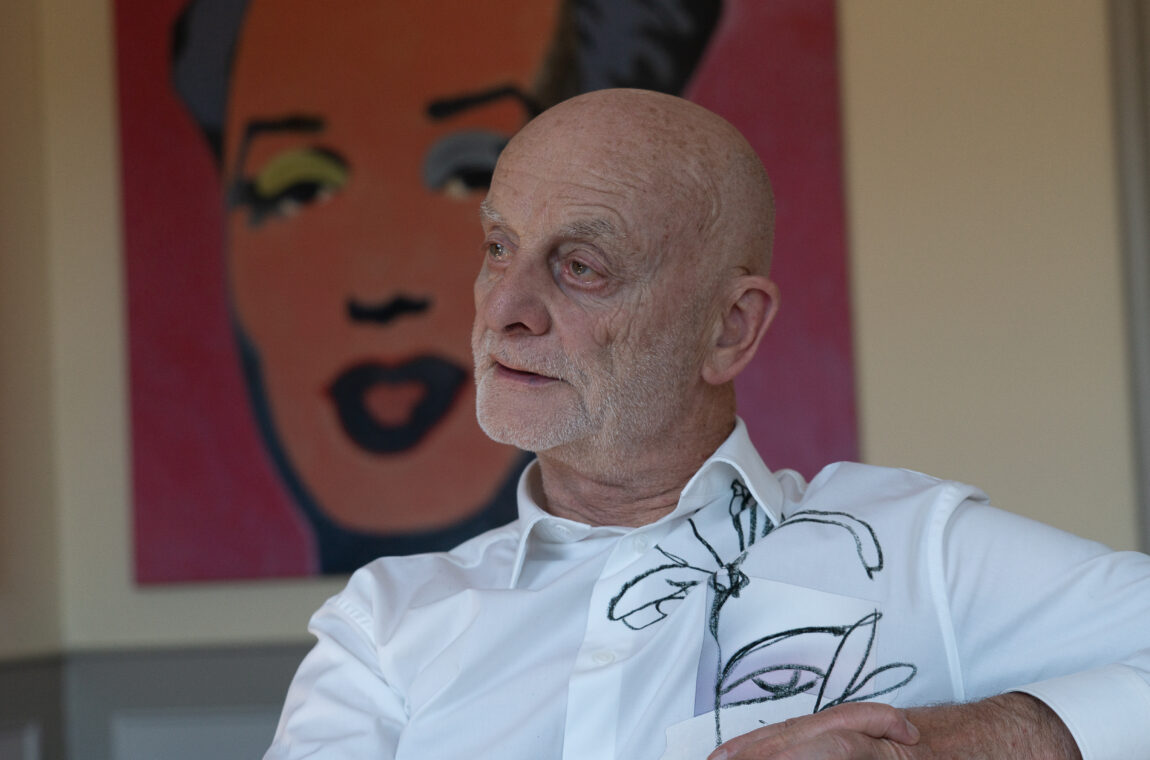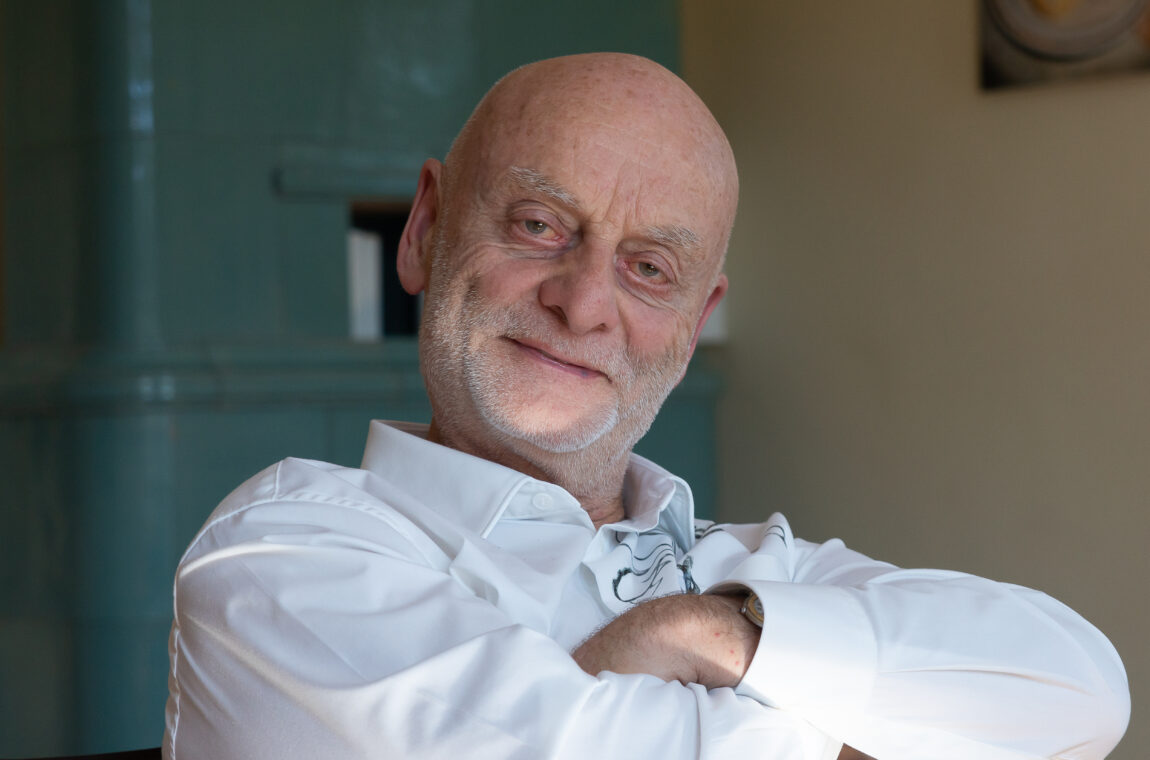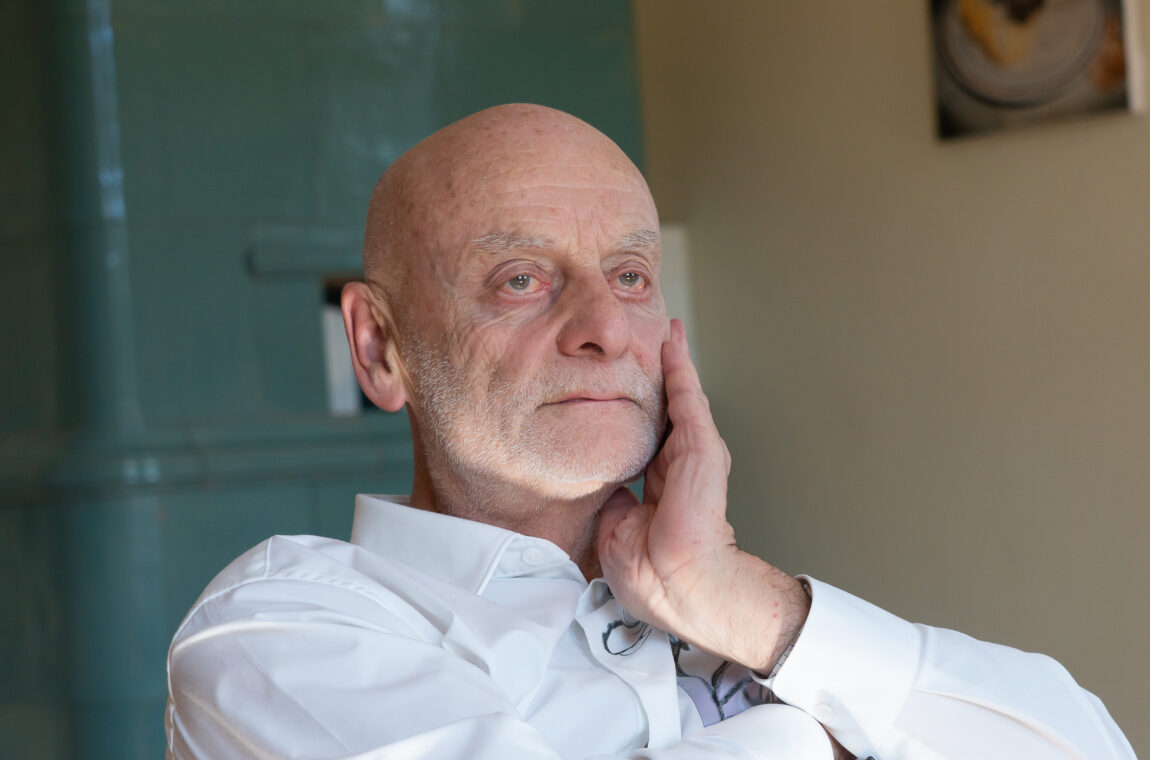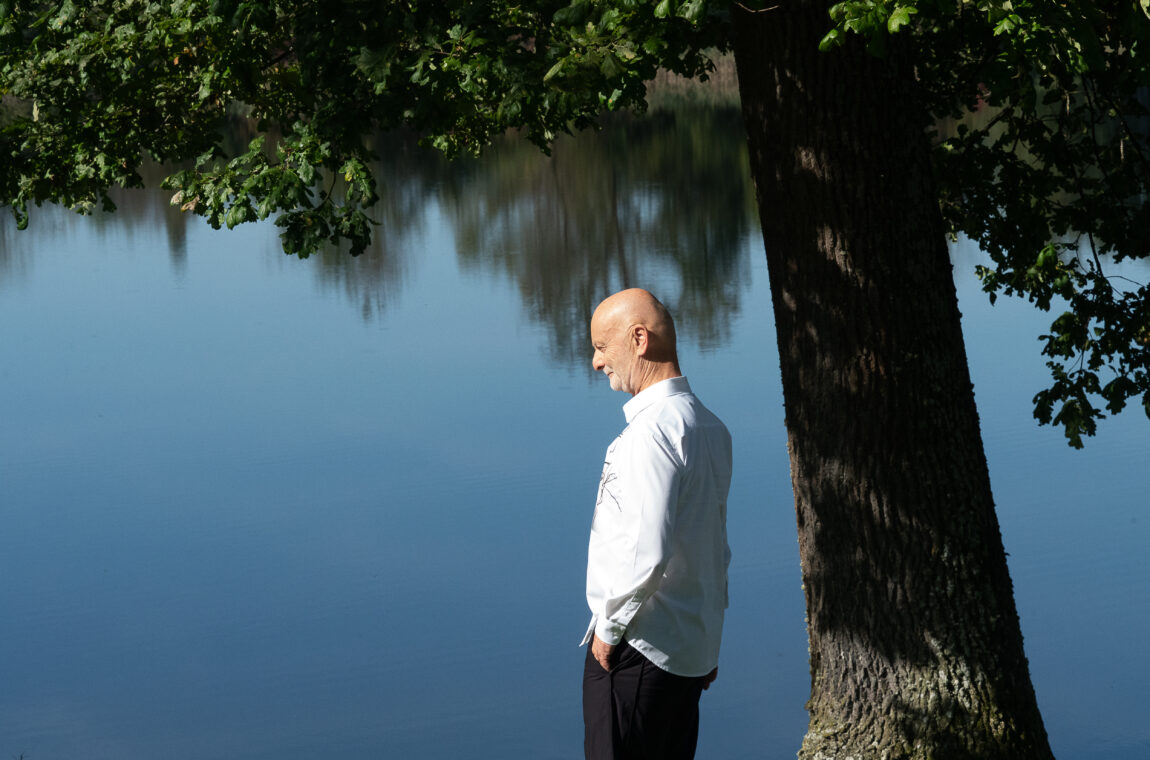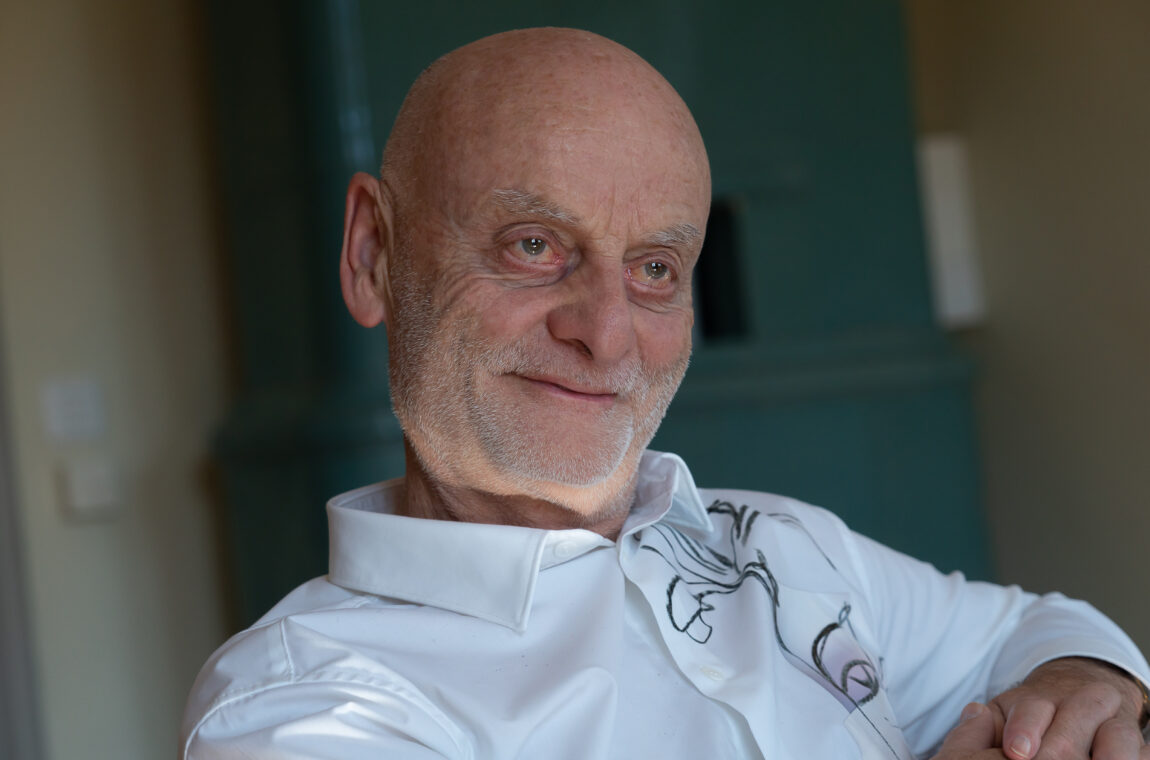Uli Sigg
Uli Sigg has a Master’s degree and PhD in law. He worked as a journalist in the field of economics and served Switzerland as an ambassador in China, Mongolia and North Korea.
He is an entrepreneur, collects art and has built the largest and most comprehensive collection of contemporary Chinese art in the world.
He lives with his wife in Switzerland at Schloss Mauensee.

Why do you think are you so successful?
If I have to attribute everything to just one thing, which of course is a bit of a simplification, because there are hundreds of factors. Some are self-earned and others are luck and the others fall to you from context. But if we were looking for the one thing now, then it was probably an experience that I had when rowing. I was 15 or 16 when a friend and I joined the rowing club in Stansstad,a nearby village. That’s where the Waser brothers were rowing. In 1962, they actually won the bronze medal at the World Championships. This was the first world championship ever in rowing and that took place in Switzerland at the Rotsee. That was a key experience for me: I said to myself, if someone that comes from a small town like mine can be one of the best in the world, then I must be able to do that too. That was very important for me.
I saw that two normal people managed to be among the three best in the world. I thought you obviously don’t have to come from New York or have whatever kind of background. It must also be possible for me to be among the best in the world. You can set that as a goal. And that, of course, actually releases a lot of energy. I must say that was what gave me that boost. You want to be amongst the best in the world if you seriously start something. You know you may never succeed, but it’s not impossible, right? That is the core thing. That it’s possible. That you can grow and be among the best in the world. That was a huge driving force for me, I almost never wanted to be less ambitious. But whether you can ever achieve it is completely uncertain. It was like this when I decided to collect Chinese art. When I decided to do that, it had to be the best collection in the world. And that’s what it is today. That’s what I mean. Or if I want to create a joint venture company in China and there is even a remote possibility that it may be the first ever then that is what I want to achieve. So that’s it, yes. If I reduce myself to one thing now, it would be this. We’ve actually only addressed one dimension so far. Of course, that’s not the only one. But that’s just one of the criteria when I’ve started something.
Another important point is empathy, to be interested in others, to empathise with others. Certainly, without empathy I wouldn’t have achieved much, because,I think you get so much further with that than without that. You have to be able to empathise with others in order to get the best out of everyone. You need to treat the other person well, even those you don’t like. I think empathy is the pillar, because you can’t do everything on your own, you have to work with others.But empathy is a gift that not everyone has. You have to develop and grow it. You can’t just stop there. You have to work on it, you have to work on yourself.
And it’s very important that you signal to other people that you feel empathy. Not everyone can do that or can feel empathy at all. Because, actually, it only works if you feel it. I think I have this empathy, but it needs a counterpart. You also have to make yourself understandable and tangible, otherwise your beautiful gift will fizzle out.
Do you have a role model?
No. I don’t have a role model. Except the kick I got from the event with the two rowers. But no, I don’t have a role model.
What is the impact of nature, art or beauty on your life?
I collect contemporary art. So let’s start from there. People say you can only understand your generation of artists. Personally, I don’t think it’s like that at all. For many, this is true, but it doesn’t have to be that way. My goal is, of course, to understand the very latest art too. I have to put myself in a position so that I can follow the young artists. That helps keep you young, doesn’t it? My goal is to understand the latest phenomena in society and think myself into these processes.
And then, of course, you also have contact with young people. The problem I have is we don’t have children. The whole experience is actually something I don’t have. Sure, you can be a godfather for someone, but that’s not the same thing.And the young artists are taking up new techniques and concepts and work with them. For example: a surveillance system called Social Credit Score is already installed in fragments in China. Not the whole system yet. But many parts are already there. Let’s say you walk across the street at red. Immediately, you’ve already been captured by one of these 400 million cameras using face recognition. That already leads to a penalty. There are already about five million Chinese who can no longer buy a ticket for a flight, or for the express train system, just because they have a bad score. Can you imagine that? And so, I study this situation by developing a work about this issue with an artist. Of course it had to be called something different so it can be shown also in China. We have pushed it back and forth many times, discussed it, changed it. In this case I’m involved In this process with the artist and I learn a lot from her. And she learns from me. And in the end, this is a work of art. And that’s fun.
Well, that’s me. But of course, not everyone can do that. I can actually do that because of my position in the world of art. Artists want to have first their freedom to create. They have to be convinced that they will also win through this process with me.. And that’s what I actually like to do the most when we talk about art. Rather than buying a finished product I prefer to develop something with an artist and also be involved in this creative process. Not everyone wants that. But many appreciate it. Some people think I’m an artist. Many artists believe this. But I say, ‘I’m not’, because there is this very, very, very deep dividing line between the artists and us. They do it and we don’t! I might often have the better ideas, but I don’t do it. Like all of us: We all have great ideas, all day, but we don’t do it. That separates artists from non-artists, for me. This is a very substantial difference. I know my limits. So yes, I say:‘No, no, I’m not an artist’. If I were one, I would have done it on my own. I didn’t.
Because I’m doing well, I have the feeling that I have to share, I have to give back to society. Half of my time I spend helping others. A seemingly endless number of people who want to know something about China or something else, that are seeking advice. I often spend time on projects of others that have no benefit for myself except a satisfaction of sharing.
What is your Utopia?
I have a utopia for the art scene. That finally the West and East will have the same weight in the artworld – that would be something. And it would also be important to me that contemporary art be appreciated differently in China. A vast majority still has the exclusive paradigm of tradition in their heads. That means, so to speak, the art of ‘overbuilding’. Take landscape painting for example. Traditionally, this art was created to bring the viewer to the sublime, to beauty and harmony. It was never about representing this landscape that you see from the window here. Instead, an artist looked at this landscape and then would go to the study and paint that landscape from imagination. So it was all about providing us beauty and harmony, to lead us there, out of our everyday life into giving us our moment for infinity. Their art is your good friend. But contemporary art is not your good friend. Rather, it is about showing reality as it is and what is going on. About opening up to critique and new ways of thinking. That is something completely different. Official China hasn’t really accepted that yet. And because that’s the case, contemporary art is actually heavily censored. Official China also wants to have control of what the perception of China is abroad. But contemporary art is very different. That’s the main problem regarding contemporary art in China. I actually tried to do a lot to open up this perception. I created an art prize, I created an art critic award. Not because I can change the situation myself, but to start a discussion, a much broader public discussion: What is contemporary art about? And what can independent art critique contribute to this debate?
And that’s why I made this collection, so that in 20, 30 years when the Chinese children ask their mothers what did our artists do in that period,, there will be an answer because there is this museum, a place where you can go and look at this history. Those were my motives. You ask about the outlook. Whether this will succeed. It will, at some point. But no one knows how fast. Hong Kong is a test case for that, which is where this museum will open now. And where a significant part of the collection will be shown for the first time. There’s a new security law in Hong Kong and we don’t know how much freedom will still be granted to such an institution. But for me, these are relatively short-term considerations. And I’m relaxed. It may take 10 or 20 years till everything can be shown. So be it.. But sooner or later I know it will happen. So this is my outlook. Whether I can see it myself is not important.
What do you say to people asking for advice? What do you tell young people?
Get to know yourself and then become best in class, focusing on your goals. Gain experiences that will make it easier for you to win. You will lose sometimes. But the only thing that matters is that you win more than you lose. Not that you don’t have a defeat. If, you act like those who intend to lead a zero mistake life in order never to lose, then you may not fulfill your dreams.
At some point you actually have to recognize the specific profile that you have, that is you. Your strengths, your weaknesses. And you have to deal with that. Not with any other. Not with some role model who did something fantastic. You have to do it yourself. The blind spot you have regarding yourself, you have to define that first. And then you have to eliminate it. And then you have to work on yourself. That has always impressed me in Asia. They call it self-cultivation. This has a very high priority in Asia, dating from Confucianism . Self-cultivation is very important. That’s why all education is so important in Asia – even to the point of perversion. Put simply, it’s not like you’re done at some point, or you simply are how you are.
Rather, you have this task of cultivating yourself for a lifetime.
